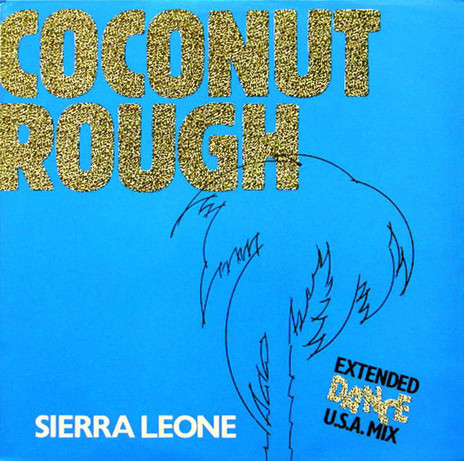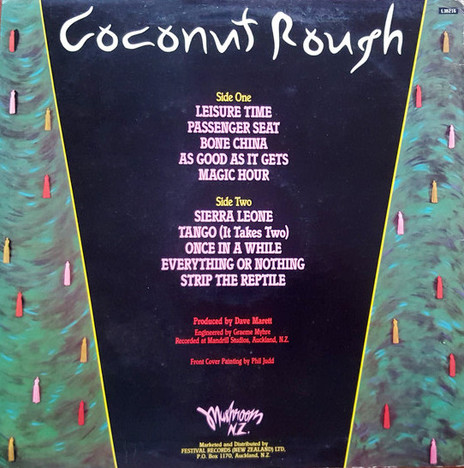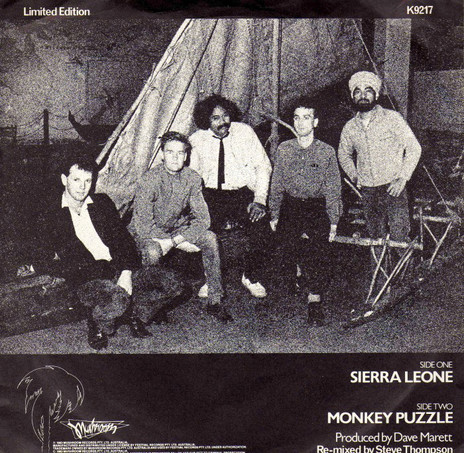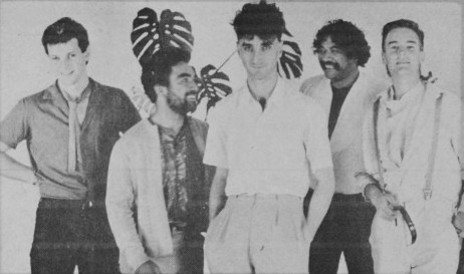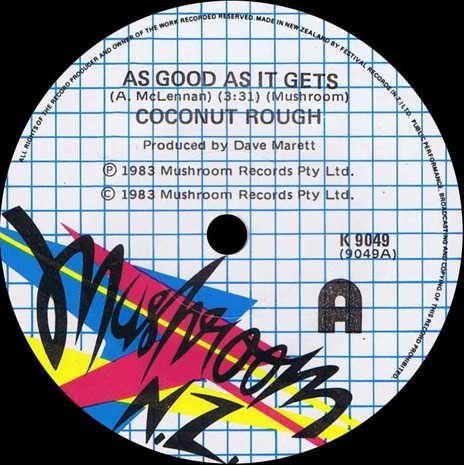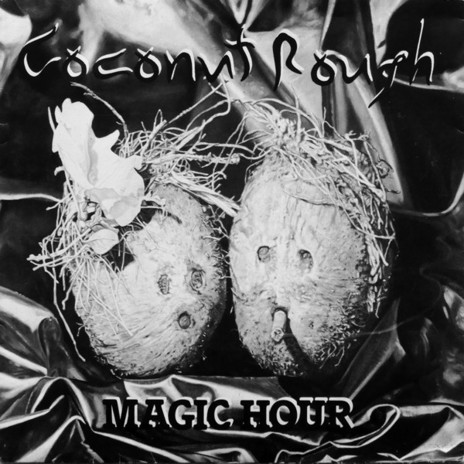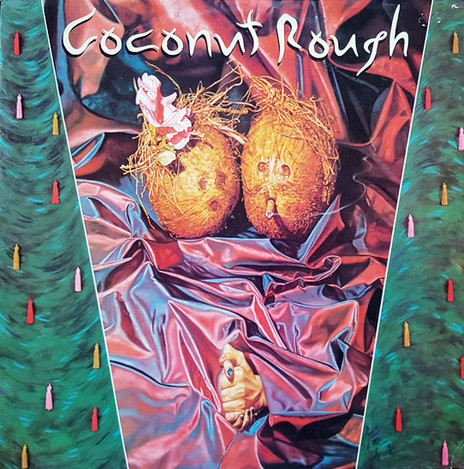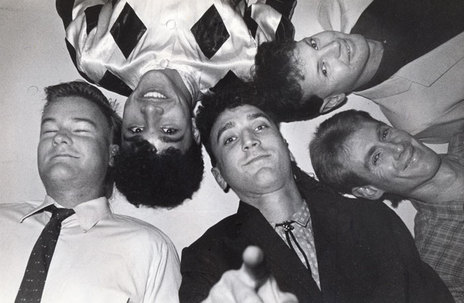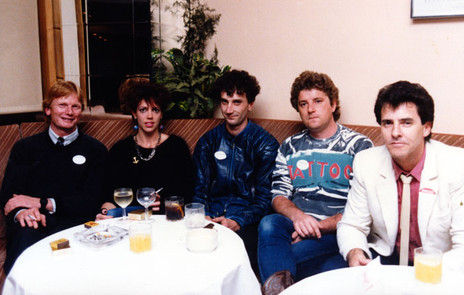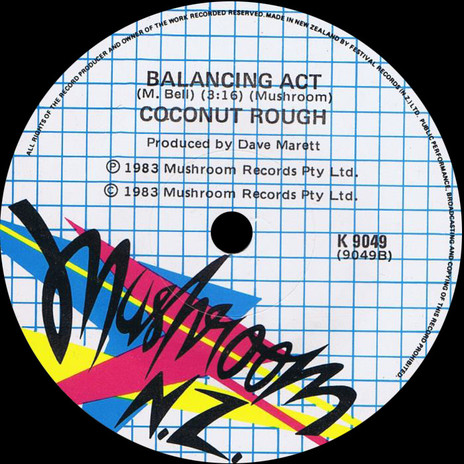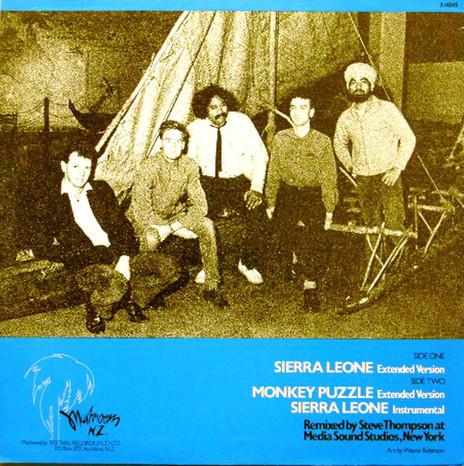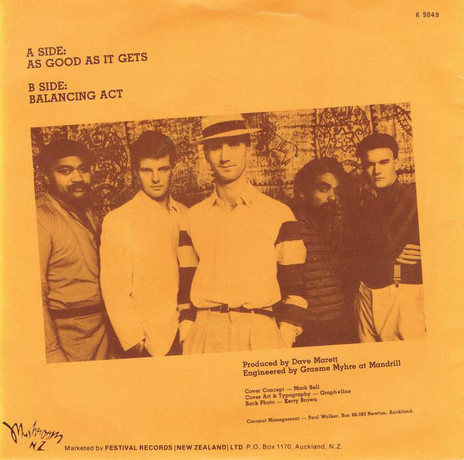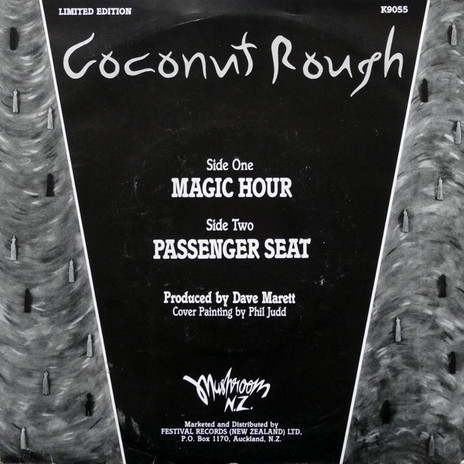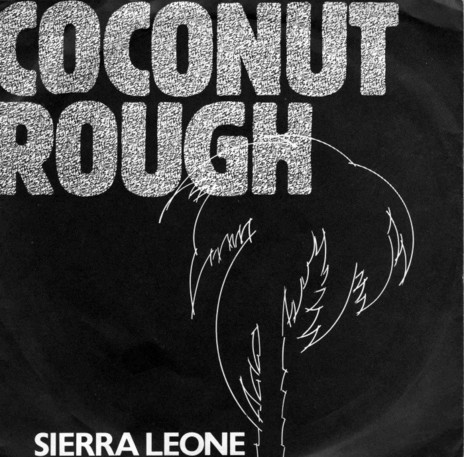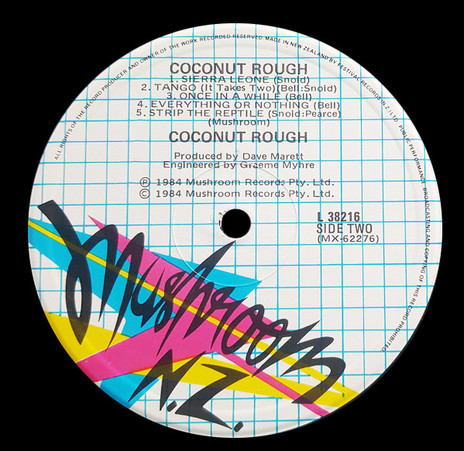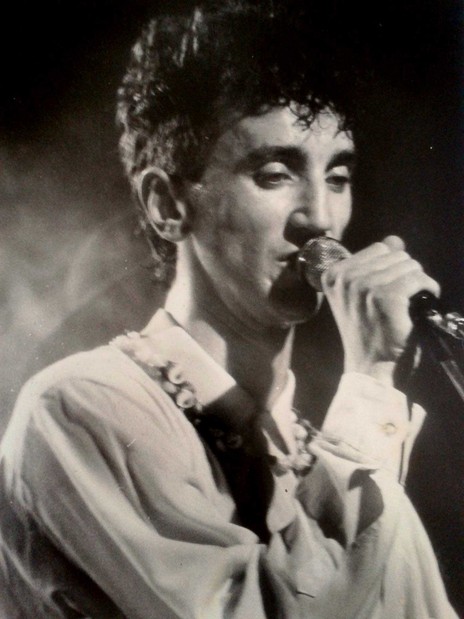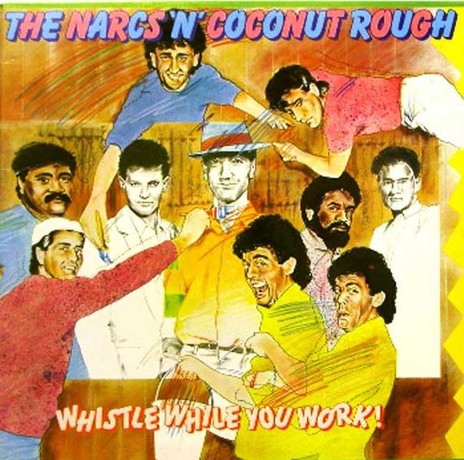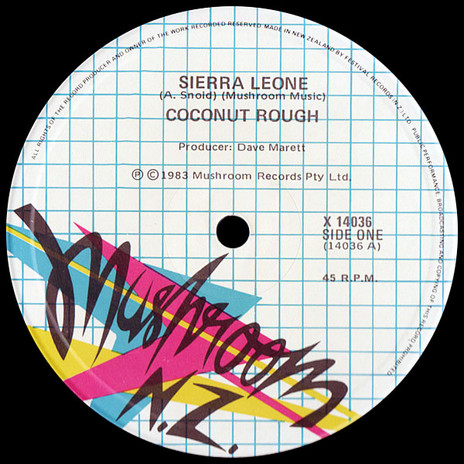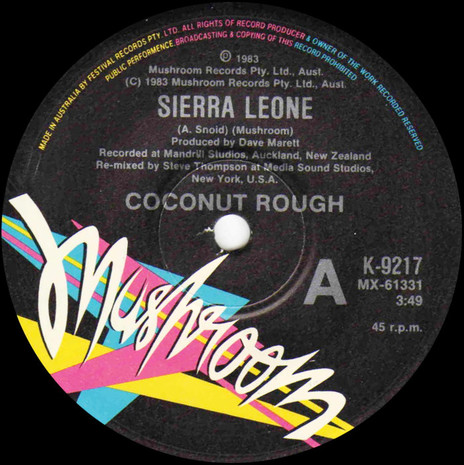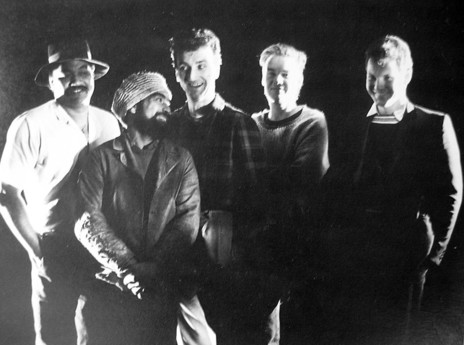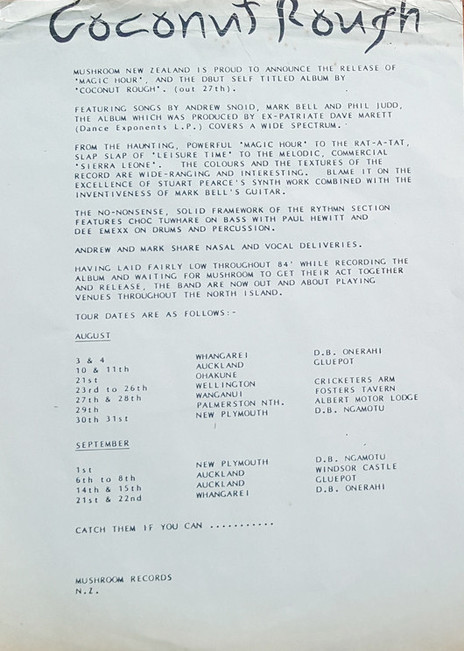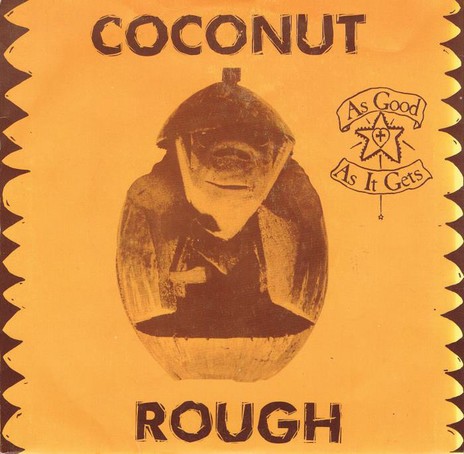The initial impetus around ‘Sierra Leone’ was lost while the Australians looked to rework the original mix of the LP but couldn’t find a suitable producer. Meanwhile, back in New Zealand, Coconut Rough toured the country again and again with still no album to promote. By the time it was released, a year after the hit single, Coconut Rough was a different band with a confused audience.
“It was the most terribly frustrating thing,” bandleader Andrew McLennan recalled. “I do not know why the hold-ups were so bad. It still strikes me as being really bizarre and I think quite wasteful and irresponsible from a record company’s point of view; they’re the ones who put the money in. It was a nightmare.”
The frustrations led to uncalled-for band dismissals and departures and by the end of Coconut Rough’s 18-month existence, former schoolmates McLennan and Mark Bell were all who remained from the original quintet.
Ex-bandmates in The Plague and The Whizz Kids, McLennan and Bell found themselves in similar circumstances in the middle of 1982. McLennan’s tenure as frontman with The Swingers ended when Phil Judd pulled the plug on that band in April, while a road accident the following month put paid to Bell’s Blam Blam Blam just as they were “starting to make a bit of money”.
Still using the Snoid surname he had adopted in The Plague, McLennan quietly considered his next move, resurfacing to road-manage Dance Exponents on a national tour and again teaming with Bell in a Whizz Kids reunion in September. Bell auditioned successfully for Auckland City Council’s PEP-scheme-funded 11-piece band Big Sideways.
After six or so months of “licking [his] wounds” and writing a batch of songs, McLennan was ready to get back into it. Guitarist Bell was his first recruit and he brought along Big Sideways drummer-percussionist Paul Hewitt, who in turn invited his former Smilers bandmate, bassist Dennis “Choc” Tuwhare.
Synthesiser player Nigel Russell attended a handful of rehearsals, but was committed to Car Crash Set. Aware it was a fairly long shot, McLennan asked former Street Talk pianist and Mandrill engineer Stuart Pearce to join. Keen to explore the developing synthesiser technology, Pearce was exceedingly enthusiastic. “He asked if I wanted to play in a sort of a poppy band and the idea really appealed to me,” Pearce said. “I thought, ‘Great. Yes, I want to try this.’”
Once the new line-up started playing, the excitement was palpable. The funky grooves of Hewitt and Tuwhare were a departure for McLennan and Bell, and Bell was enjoying the freedom of not being the main instrumentalist as he had been in the Blams. “It sort of taught me to not get in the way of what the keyboards were doing,” he said. “I had to be a little bit more circumspect about my guitar contribution. Coming from a three-piece you’re kind of it rhythmically and melodically.”
With the aid of an old map, ‘See Ya Later, Leonie’ turned into ‘Sierra Leone’.
McLennan hit upon the name Coconut Rough while receiving some refresher piano lessons; the seemly teacher telling of an encounter in a dairy with a big Island gentleman wearing a T-shirt emblazoned with the words “coconut rough”. It proved a more desirable alternative to Bell’s suggestion of Red Berries.
One of McLennan’s new songs was an ode to his girlfriend’s sister who was departing to live in Australia with her partner Mike Caen, formerly of Street Talk. With the aid of an old map, ‘See Ya Later, Leonie’ turned into ‘Sierra Leone’. The band worked it up with Pearce injecting a synth vamp inspired by Toto’s ‘Hold The Line’.
Coconut Rough included it on a live five-song demo recorded at Mandrill and debuted at a Windsor Wednesday at the Windsor Castle, before headlining at the Gluepot in May 1983. A month later they were supporting the expanded DD Smash at Mainstreet.
There was an immediate industry vibe around Coconut Rough with Tim Murdoch at WEA and Doug Rogers at Ze Disc wanting to sign them. But McLennan remained loyal to his former Pop Mechanix manager Mike Chunn, who had established a New Zealand branch of Mushroom Records. Through his stint with The Swingers, McLennan already had a connection with the label’s founder Michael Gudinski and its publishing head Jenny Keath.
‘Sierra Leone’ was recorded at Mandrill with Dance Exponents producer Dave Marett, who had also worked in Australia with Dragon, Sharon O’Neill and Mi-Sex. When released in August and sporting a pacy video directed by Gregory Rood, it exploded onto radio and television, staying on the New Zealand singles chart for 17 weeks. Coconut Rough was away.
With the song peaking at No.5, the band filmed a Radio With Pictures Mainstreet show, which was later released on CBS in partnership with The Narcs as Whistle While You Work – The Narcs taking side one, Coconut Rough side two.
Coconut Rough hit the road, attracting big crowds that went from fairly muted to going nuts the moment Stuart Pearce hit the opening chords of ‘Sierra Leone’. One tour was sponsored to the tune of $16,000 by the Alcohol Advisory Council of New Zealand’s Say When campaign. The sponsors were unaware of the vodka in the band members’ onstage orange juices.
In November, they were awarded Most Promising Group at the NZ Music Awards and McLennan picked up Most Promising Male Vocalist. Meanwhile, Mike Chunn had them back in the studio with Dave Marett to record an album. A taster came in the form of single ‘As Good As It Gets’, but it spent only two weeks in the chart, peaking at No.28.
With Marett’s final mix of the album sent to Mushroom Australia, it was now a case of “hurry up and wait”. Mark Bell participated in a brief Blam Blam Blam reunion and early in 1984, Coconut Rough played Sweetwaters and supported The Police and Bryan Adams at Western Springs. In February, Paul Hewitt was asked to leave, replaced by virtuosic drummer Eddie Olsen, late of The Instigators and Auckland Walk.
Bell especially had become increasingly frustrated with Hewitt’s playing. “I put that in the category of overthinking,” he says now. “I think you realise there’s something wrong and you try and analyse what it is, and sometimes you misdiagnose what the problem is with the band. It was totally unnecessary to change the rhythm section, in retrospect, but you sort of go with your best hunch at the time.”
McLennan: “In retrospect, I regret that. It was an absolute mistake interfering with that line-up because as loose as it was at times, there was something there; there was a spirit there. If I had my time back, I would never have changed the line-up at all.”
Mushroom in Australia believed Marett’s album production could be bettered. They put the band on standby while they tried to no avail to attract British producer Norman Mighell, who had worked with ex-Rolling Stone Mick Taylor and Joe Jackson. Later, Mushroom thought they had Frankie Goes To Hollywood engineer Julian Mendelsohn interested, but he reneged.
The label advised Coconut Rough to get to writing more songs with an enticement they might be able to record them when they got over to mix the album. So the band adjourned to Stuart Pearce’s shed, coming up with some pretty good new material.
“I tore my hair out. And I tried to tear Mike Chunn’s hair out too.” – Andrew McLennan
The delays with Mushroom continued and strained not only the relationship between McLennan and Mushroom NZ head Mike Chunn but also the band’s relationship with their manager Paul Walker, who could do little more than book another round of gigs with still no album to promote and 13 people on the payroll.
McLennan: “I tore my hair out. And I tried to tear Mike Chunn’s hair out too. In fact, it got to the point where I was very rude to Mike, which I do apologise for, but I couldn’t understand it and we could never get an answer. I couldn’t figure out a way to keep the ball rolling while seemingly nothing was happening.”
In June, Choc Tuwhare was let go to make way for out-of-work ex-Swinger Bones Hillman. It was a prime example of the old-boy network in action. A week after unveiling the new line-up, Stuart Pearce phoned McLennan to say he was going to Texas with Gray Bartlett for a month and when he got back he would not be rejoining Coconut Rough.
Bell: “I think once Stuart had gone, it was a very different beast and I really don’t think it was a really particularly good live band. We had a great rhythm section, but once the fairy dust keyboards had gone it was a very different beast. I think it was kind of the beginning of the end.”
Written by Phil Judd and on his solo album Private Lives from the previous year, ‘Magic Hour’ was released in August followed, finally, by the self-titled LP – ironically with Dave Marett’s original production! The Coconut Rough that went out in its support bore little resemblance to the band that was on the crest of a wave only a year before.
‘Leisure Time’ sunk without trace while the band toured the country again over the summer. At tour’s end, there was no big announcement or meeting signalling the end of Coconut Rough, it just became apparent the band had finished. “I remember it as just one day there wasn’t a rehearsal to go to,” Bell said. “I think it just kinda stopped.”
For Andrew McLennan, his memories of Coconut Rough and ‘Sierra Leone’ are mostly positive. “Having all this time gone by now, I actually feel very grateful that I got one song away and that it’s part of the New Zealand musical landscape. It’s not something everybody gets to say they’ve been able to do.”
